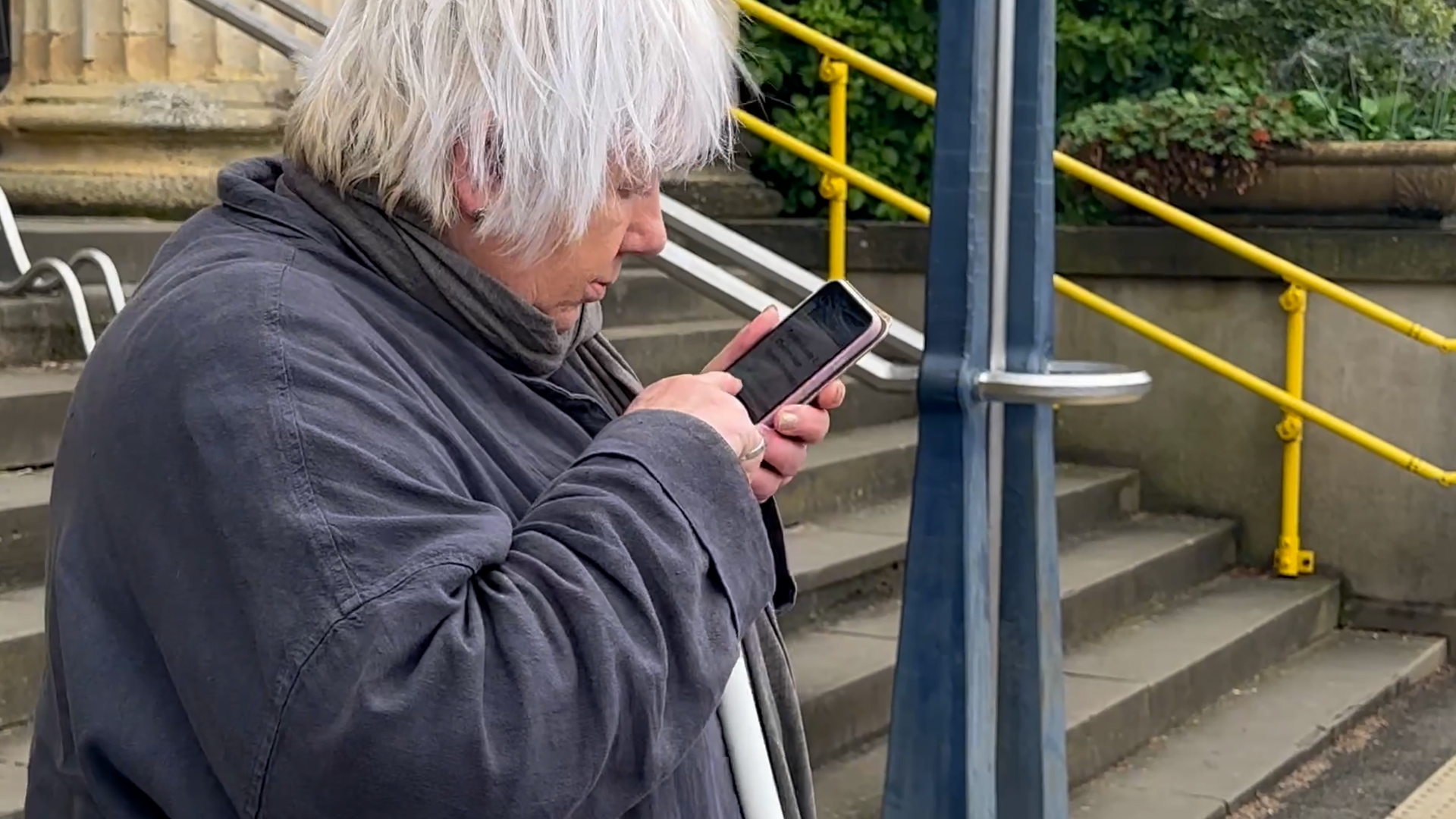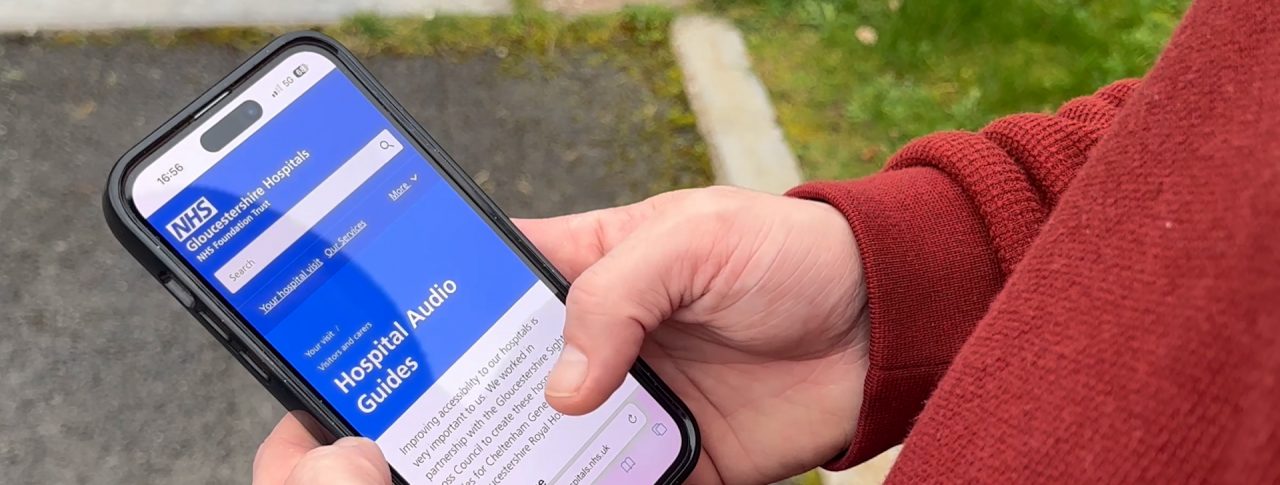SLCs develop first NHS audio-guides
Sight Loss Councils have worked with two South West Hospital Trusts to develop the first NHS audio guides for blind and partially sighted people. The new tools will help improve accessibility across hospitals in Gloucester, Cheltenham, and Bristol.
Sight Loss Councils’ (SLC) across the country are working with health providers to #MakeHealthAccessible. This work focuses on raising awareness of the needs of blind and partially sighted (BPS) people and working to create positive change at local and national levels.
Navigating a busy hospital environment can be challenging for anyone, but for BPS people, it can be particularly difficult. Lack of accessibility can create anxiety, restrict independence, and impact access to some health services.
In addition, over the last few years, Gloucestershire Royal Hospital and Cheltenham General Hospital have undergone significant transformation and improvement works. These changes can add further challenges for BPS people accessing health care.
To ensure the hospitals remain as accessible as possible for all patients and visitors, Gloucestershire SLC has partnered with Gloucestershire Hospitals NHS Foundation Trust and University Hospitals Bristol and Weston NHS Foundation Trust. Together, we have coproduced a series of audio guides to help BPS people navigate Gloucestershire hospitals independently.
NHS Audio Guides
The 12 new guides will allow people to access the emergency departments on both hospital sites, as well as ophthalmology and eye screening services. Using artificial intelligence voice-over, the trusts’ created the tools, enabling rapid development and testing, and significantly reducing costs.
You can access the guides on the hospital website from smartphones and tablets. It is believed they are one of the first NHS navigation audio tools ever developed. The audio guides provide clear, step-by-step instructions, allowing BPS people to navigate hospitals independently and with confidence. They aim to ensure that BPS patients are able to find their way to appointments and services, thus reducing anxiety.

Ann Lightfoot, Gloucestershire SLC volunteer, accessing the audio guides on her smartphone
Feedback on the project
Ann Lightfoot, Gloucestershire SLC member, said:
“Visits to hospital can be stressful for anyone They are notoriously hard to find your way around, and signage isn’t always very clear.
“The audio guides should certainly help sight impaired people access areas in the hospital with more ease. It’s very important that everyone has the opportunity to be independent, and anything which assists this has to be applauded.
“I was very proud to be involved in the production of these audio guides as with fellow SLC volunteers. It was a privilege to collaborate with a forward thinking health authority on this innovative project.”
Alun Davies, Engagement Manager for South West England, said:
“We very much applaud Gloucestershire Hospitals Trust for working with us to develop the audio guides. Going to a hospital is stressful enough for anyone. When you have a visual impairment, it is potentially much more of a concern.
“These guides will hopefully take some of the worry away by helping people who are blind or partially sighted orientate themselves before they visit and give them some directions when they get there.
“The Sight Loss Councils are working with the trust on other issues, such as the Accessible Information Standard and training of visual impairment awareness. The trust is firmly committed to improving the experience of their blind and partially sighted users and visitors”
Matt Holdaway, Chief Nurse and Director of Quality, Gloucestershire Hospitals NHS Foundation Trust, added:
“We are extremely grateful to Gloucestershire Sight Loss Council for their support in bringing this important project to life.
“We know that hospitals can be difficult for many of us to find our way around, and we hope that these new guides will make it easier and reduce the anxiety for people who are blind or visually impaired.
“We continue to improve the accessibility of our services, and these innovations, aided by low cost, high quality AI technology, means we can explore different approaches and far more quickly.
“We hope to expand on this work further in the coming months.”
We look forward to continuing our collaboration with both trusts and hope that it leads to the wider development of more audio guides across other health services.
Stay in the know
Want to get involved in our national campaigns? Stay up to date with news from Sight Loss Councils and Thomas Pocklington Trust by signing up to our mailing list.
Publication date: 14 March 2024

